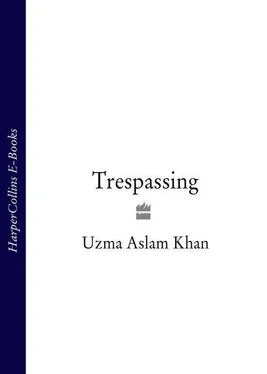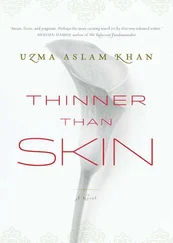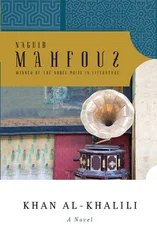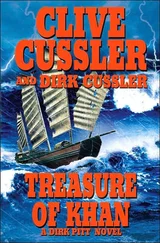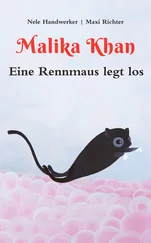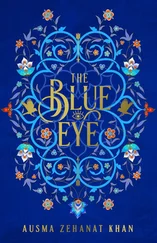To have more than this, to have him back even once, could she really give Daanish up? To go back to the night before his death, before Riffat huddled with her children, muttering, I shouldn’t have told him. To have a different branch of the river flow into the sea, not the one that had swept her alongside Daanish. To be, instead, sitting with her family in the kitchen, watching a mother and father who were strangers, not lovers, yet loving them both. And back even further, to whatever it was her mother shouldn’t have told him. Before, before, when she was just a tiny mulberry knot, slipping howling into the world. Before the lines on her palm were even scratched. Before she must choose who she wanted to be.
AUGUST 1992
Anu was the only one delighted with the intensity of the rains. It didn’t matter that the electricity was out for seven or eight hours at a time, that she was stuck in a sweltering kitchen without even a pedestal fan, or that the house she spent so much time complaining about aged considerably with every storm. Inclement weather meant her son stayed home. Their barely functional, twelve-year-old excuse for a Datsun was entirely nonfunctional now. The day Daanish turned the ignition and it clicked dead, she’d beamed.
If he hated her for smothering him, the next minute he grew so guilty he loved her more. If he loved her more he spent less time shut in his room and more time shut in her love. But that made him hate her more. He remembered her often as she’d been the day he arrived from the airport: standing at the front door with arms open wide, firmly positioned between him and his aunts, his things, his past. She rolled comfort and isolation into one soft embrace. The fact was, he wanted both.
When not with Dia, lethargy steeped him. He woke in a stupor, gazing out at Karachi with narcotic dullness. The air was a whirlwind of opium-thick grime and smog — it latched on to his collar and screamed: Stop! Rest! Do nothing at all! And when he tried to fight, he only sank deeper in inertia.
He’d sit with a pencil and pad in his room and try to order his disorder the way he’d once classified his shells:
1. Aba’s absence
2. Anu’s presence
3. Heat/humidity
4. Noise. Always noise. Construction, neighbors, children on the street, generators, loudspeakers. Never a moment of natural silence, the kind in the sunken garden. Or the cove.
5. Dia
He’d throw the piece of paper away. All he’d written was trivial. That was the problem. His problems were not tangible monsters. They were tiny invisible bacteria. The monsters were the strikes in the city, journalists killed, burgeoning beggars. Recently, a devoted social worker had fled because his life was being threatened. No one had ever threatened Daanish’s life. Shantytowns were mushrooming. He had a house. In that house, the closer life pressed against him, the more he could think only in headlines. And in a city of eleven million, life pressed very, very close.
There were roaches bending backwards in the shower drain. Crickets chirping under the no-longer-pristine white rug. Dia had told him an interesting fact about crickets: not all of them could sing, and the ones that did sang with wings. They rubbed these together in a dance and the dance sang. Crickets with no rhythm pretended otherwise. They hung around the dancers and when the latter drew mates, they sidled up to female crickets and said: ‘Hey baby, I’m the singer in this band!’ Some singers never got a girl, and some liars did. And some crickets amplified their song by dancing in a burrow. The hole became a trumpet, like loudspeakers in little underground mosques. Daanish entertained himself for hours picturing maulvi sahibs rubbing wings together in a dark tunnel. It was either that, or the big picture: toppling governments, ethnic hatred, foreign aid, sanctions on Iraq, eighty per cent of the world’s wealth in the hands of fifteen per cent of its people.
What could he possibly do about any of that?
Was he to become a journalist in America, a country that taught students of journalism not to unearth the big picture, only to come back here and find he too needed a cleaner, less overwhelming truth?
Was that his filthy truth?
There were ants on his toothbrush. So the ad had lied. The product did have sugar. The toilet paper plugged the toilet. The tanker did not show so there was no water to flush the toilet with anyway. And when the rain fell and the power shut off, there was no fan to air out the stench in the toilet. It drifted all the way down the hall. It crept under his door and under the rug where the dancing crickets sang. Could crickets smell human shit?
If Daanish had a filthy truth, he hoped Dia could save him from it.
One day when there was a break in the rain the postman rode his bicycle through the flooded street, dropping a bundle of mail in a puddle by the defunct Datsun. In that bundle there was a letter from Liam. It was on top of a pile of bills and didn’t get too badly soaked.
Dear Daanish,
It’s been two months since you left, but no news. Didn’t I tell you not to be a stranger? So what’s up, man?
I’m at Iris’s house for the week. Her folks are real cool. They’re building this house in the woods in N. Vermont, real close to the Canadian border. It’s just about complete. There’s pine trees and elms, and days are in the mid-60s. Not another house for miles but we do have visitors: bears! It’s like living like Grizzly Adams, man (and Grizzly Iris, no doubt). We’ve been eating more blueberry pie than we know what to do with, and Iris even tried making blueberry ice cream. Du-ude! Maple syrup flows like water around here. Iris’ mom makes bitching pancakes. I must have put on ten, twelve pounds. Although maybe not: I walk and swim and chop wood.
Her dad did a lot of the building on the house himself. He’s tight-mouthed and tough like a bull, but I think he’s finally warming up to me. Yesterday, when I was helping him lay tiles in the bathroom, he told me this joke and I think we really bonded. Then all five of us (Iris’ mom and sister too) went for a dip in a nearby lake. As her dad said, it was cold as a witch’s tit.
Iris is still my queen. She played again at a church and again had everyone in awe. We go into town alone sometimes. Catch a matinee, hear some tunes. Have lunch at this diner where she’s going to work for the next month before college reopens. And I’m going to have to go home to D.C. next week. But then she’ll visit some weekend.
Hey, I heard about the chaos in Karachi. What’s going on there, man? The television made it seem like a damn civil war? Give me your news, okay?
Stay alive,
Liam.
P.S. Iris’ dad’s joke: An 80-year-old man starts going out with a 20-year-old woman. The doctor tells him to be careful. It might not be good for the heart. The man shrugs, ‘Well, if she dies, she dies.’
MAY — OCTOBER 1991
In the weeks following the success of Operation Desert Storm and the television broadcast of the biggest ticker-tape parade in history, Daanish stopped writing in his journal. A silent terror seized him, leaving him incapable of articulating anything any more. He finally felt what he’d been meant to feel since the first air strikes: nothing. He really didn’t know if anything had happened after all.
Only once did something speak to him. He clutched it in his hands, words by Vonnegut about a previous conflict: The war was such an extravaganza that there was scarcely a robot anywhere who didn’t have a part to play.
Читать дальше
Конец ознакомительного отрывка
Купить книгу
